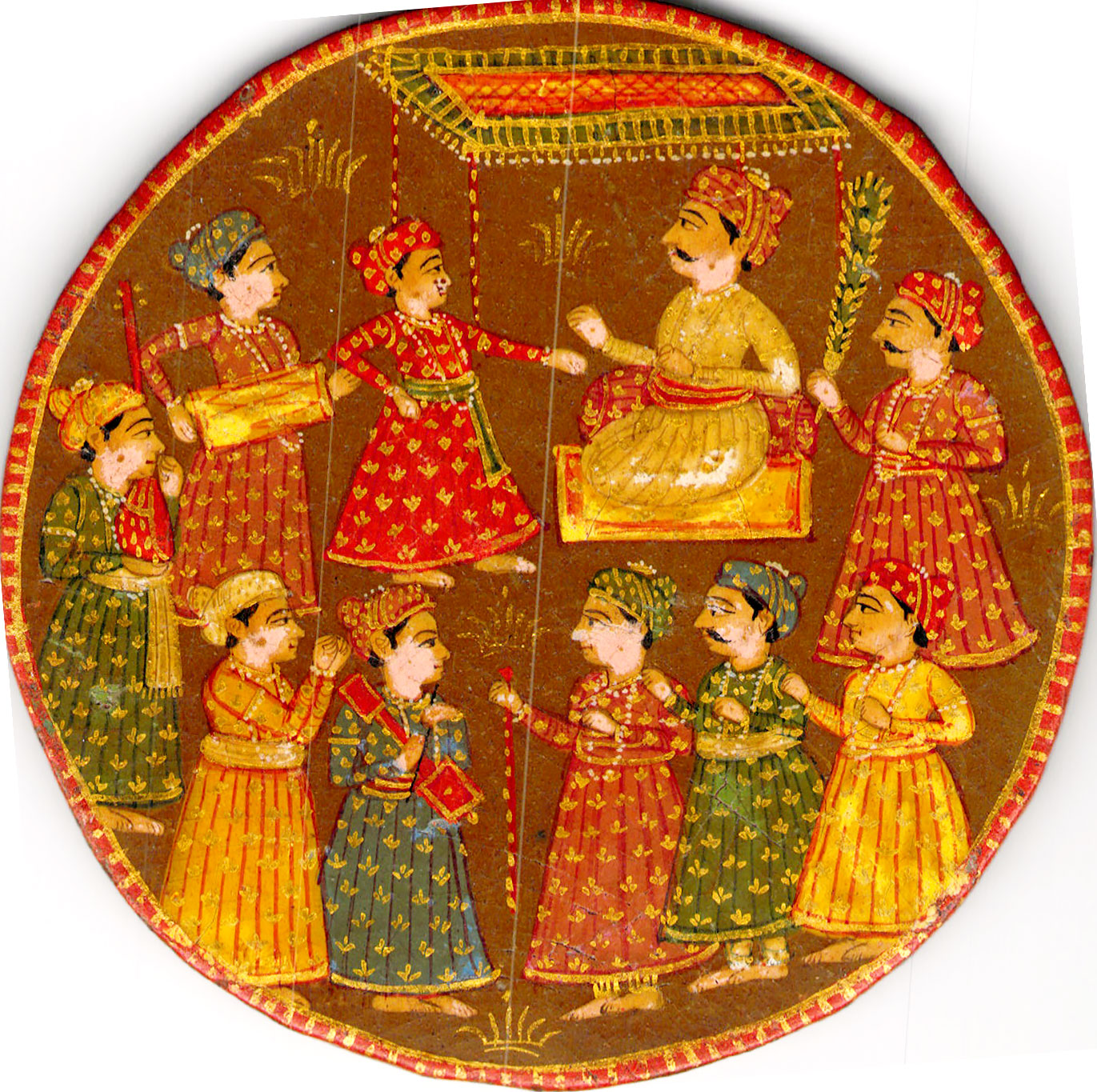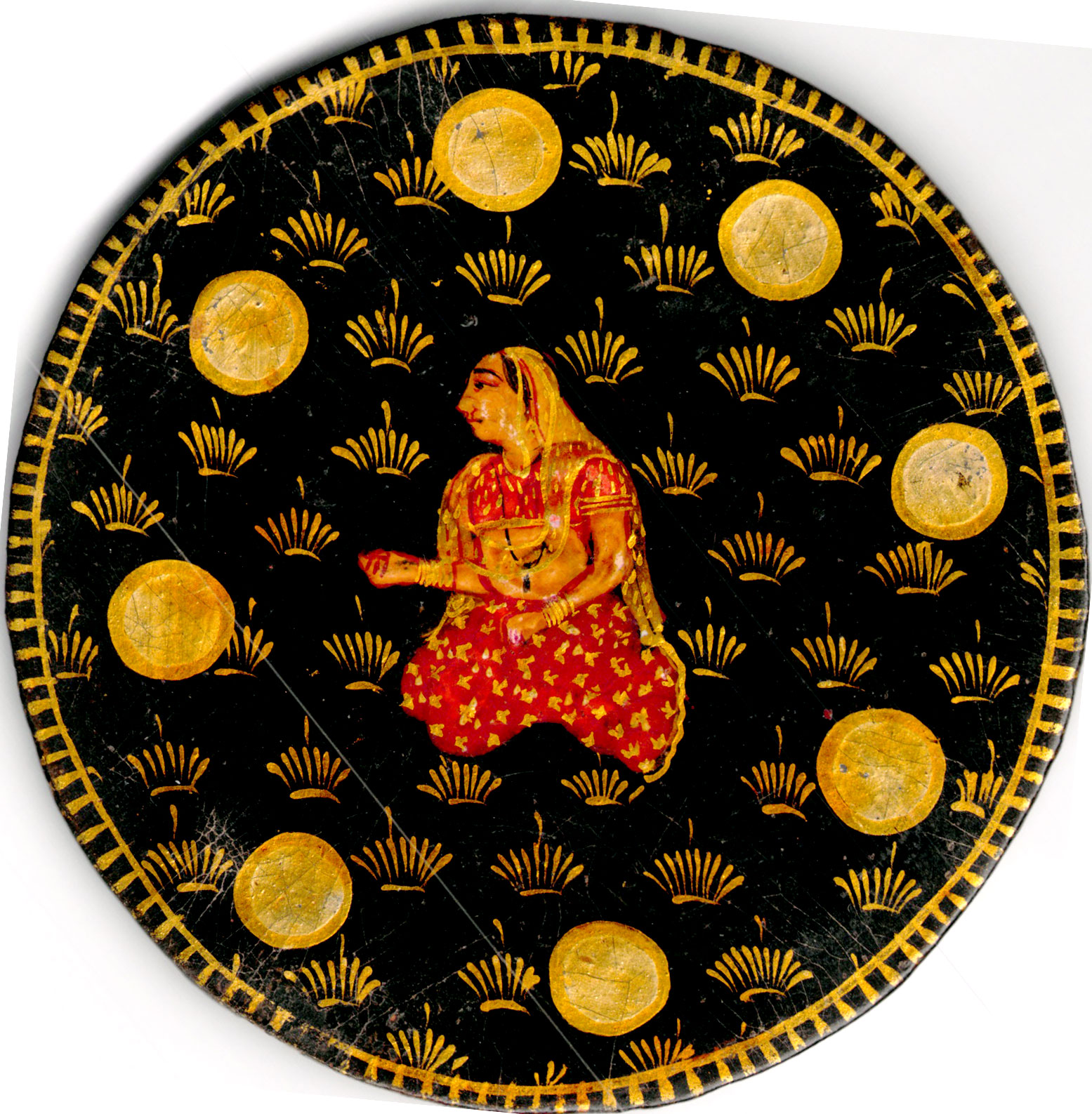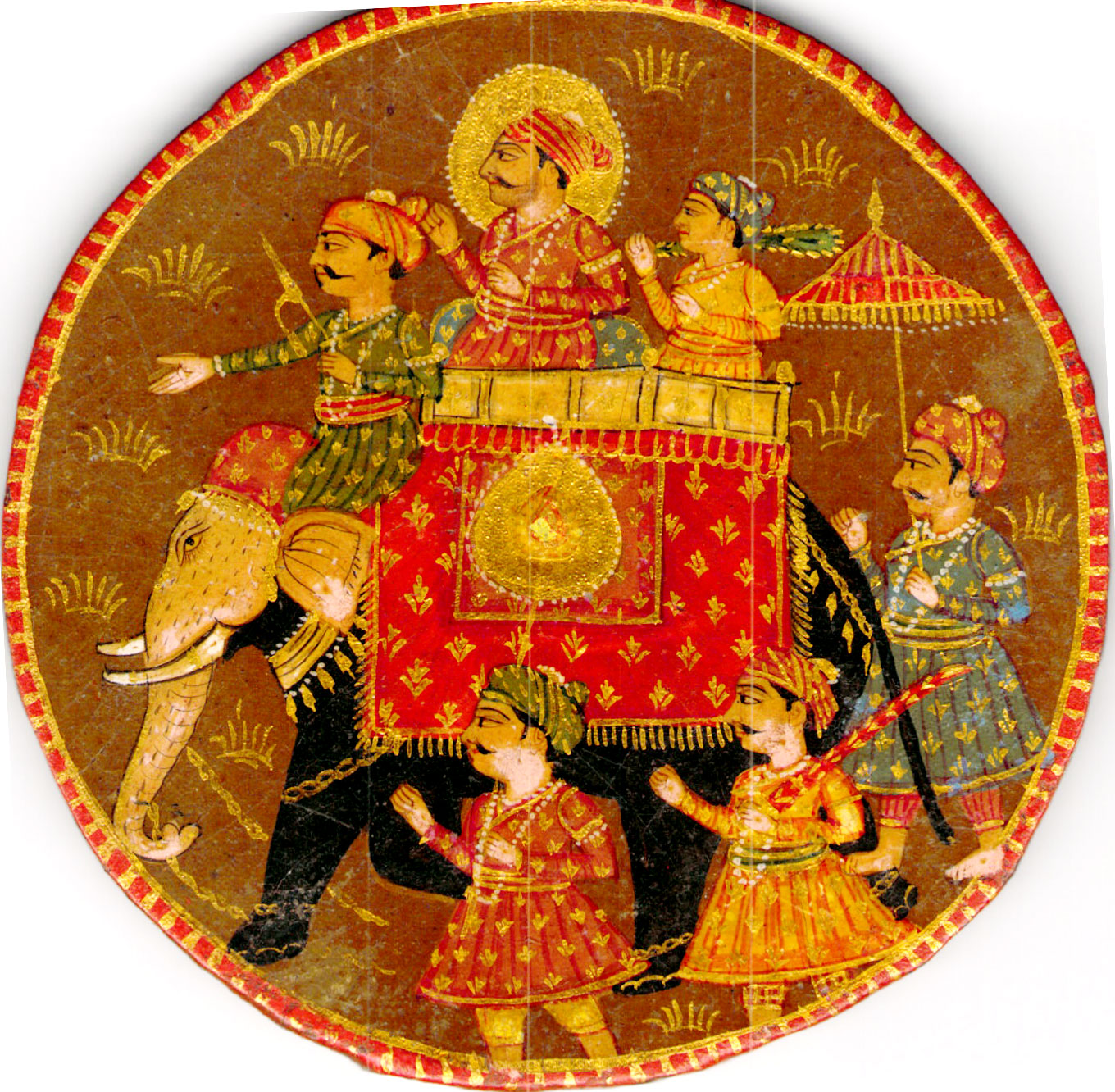Ganjifa - Playing Cards from India
Indian playing cards, known as Ganjifa, feature intricate designs with twelve suits and are traditionally hand-painted.
Playing cards were made in India at least as long ago as around 1500. It is not certain whether they pre-date European and Middle-Eastern cards, but there is enough similarity to say that they are related. ‘Ganjifa’ is the name of a game commonly played with the cards, as well as the cards themselves.
Indian cards are arranged in suits of twelve. They have two court figures – a Shah or Mir (King) and a Wazir (Minister) and ten numerals. The most common arrangement has eight suits, so 96 cards in all, probably coming from combining two sets of 48.
The suits relate to the Court of a wealthy ruler:
- Taj – a crown representing the court and its regalia
- Safed – white or silver, and meaning a coin, also associated with the moon
- Shamsher – a curved sword and sometimes shown with military figures
- Ghulam – an assistant with many possible roles
- Chang – a small harp, relating to entertainment
- Surkh – meaning red or gold and also associated with the sun
- Barat – a document, related to the chancellery of the court
- Qimash – household items, often shown as a cushion.
In the Ghulam suit, number cards show groups of people and are often interesting designs. Many of the other numerals have people or animals added. The Chang suit often depicts the harem, where music was played, so the cards often have female characters.
Ganjifa are traditionally circular and made by hand painting onto thick card and then lacquering. Some are more lavishly produced on materials like ivory and brass. As these cards are so beautifully painted, it is a little sad that the makers are not identified.
References
- von Leyden, Rudolf: Ganjifa — The Playing Cards of India — A general survey, with a catalogue of the Victoria and Albert Museum Collection; 1982.

By Paul Bostock
Member since May 07, 2024
Paul has been a collector of playing cards since his early teenage years, the mid 1970s. In the last 20 years or so he has specialised in standard English cards and their story. His collection, including many other English Standards, are featured on his website plainbacks.com. Paul is currently editor of Clear the Decks, the Journal of 52 Plus Joker, the American club for playing card collectors, and is a member of the IPCS Council, an EPCS member and a Past Master of the Worshipful Company of Makers of Playing cards, a City of London livery company.
Related Articles

French Revolutionary cards by Pinaut
Seven cards from a French Revolutionary pack by Pinaut featuring characters from classical antiquity...

Rouen Pattern - Portrait Rouennais
An attractive XV century French-suited design from Rouen became the standard English & Anglo-America...

Ganjifa - Playing Cards from India
Indian playing cards, known as Ganjifa, feature intricate designs with twelve suits and are traditio...

The Henry Hart Puzzle
Explore the intricate history and unique design variations of Henry Hart's playing cards, tracing th...

Sevilla 1647 reproduction
Facsimile of Spanish-suited pack produced in Sevilla, Spain, 1647.

Why our playing-cards look the way they do
Analysis of early playing card designs: origins, suit differences, standardization, technological ad...

Introduction to Collecting Themes
Playing cards can be broadly categorised into standard and non-standard designs, with collectors app...

Le Monde Primitif Tarot
Facsimile edition produced by Morena Poltronieri & Ernesto Fazioli of Museo Internazionale dei Taroc...

Eves Playing Cards
A pack of cards with colour photos of Indian film stars from the era

Asha Industries’ Castilian pattern
Colourful Spanish (Castilian) pattern cards made by Asha Industries in India for Mexico.

75: Early American cards
An overview of some of the early cards made in the United States.

Kings of India playing cards
Kings of India playing cards depicting the four greatest dynasties of India.

Tarot of the Thousand and One Nights (1001 Nights Tarot)
This tarot deck captures the idealised Eastern world's magic from the eighteenth and nineteenth cent...

Early German playing cards
Some early examples of popular German playing cards from the XV and XVI centuries.

ORIENT The Queen of Cards
A unique Art creation of Subho Tagore

Handmade Ganjifa Birds Playing Cards
This set of Ganjifa cards is a beautiful example of traditional cards from India.
Most Popular
Our top articles from the past 28 days




